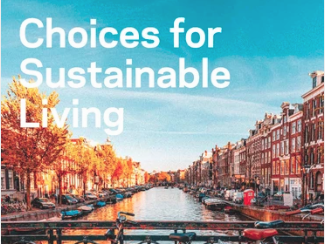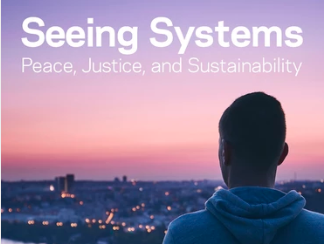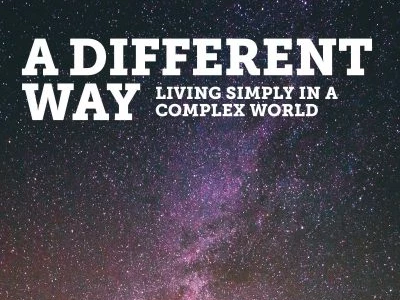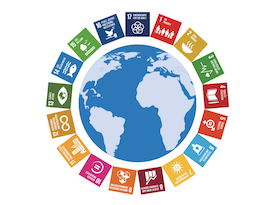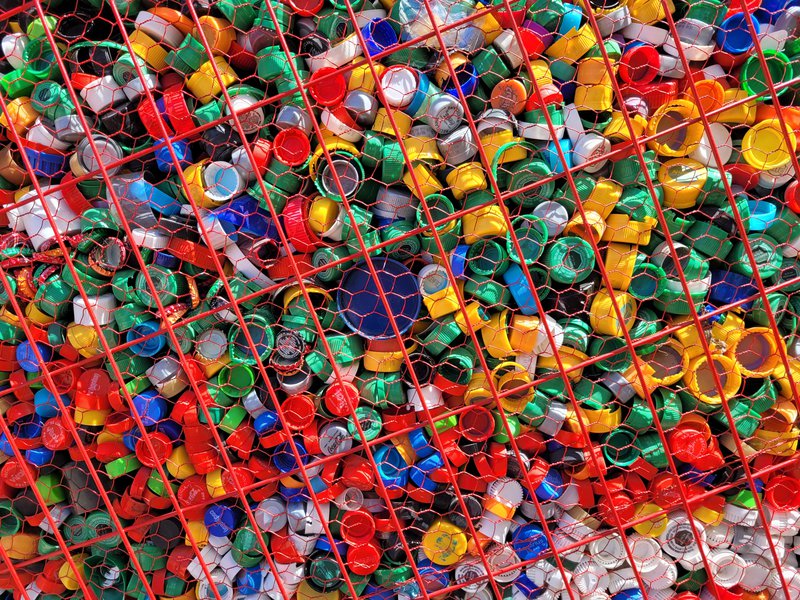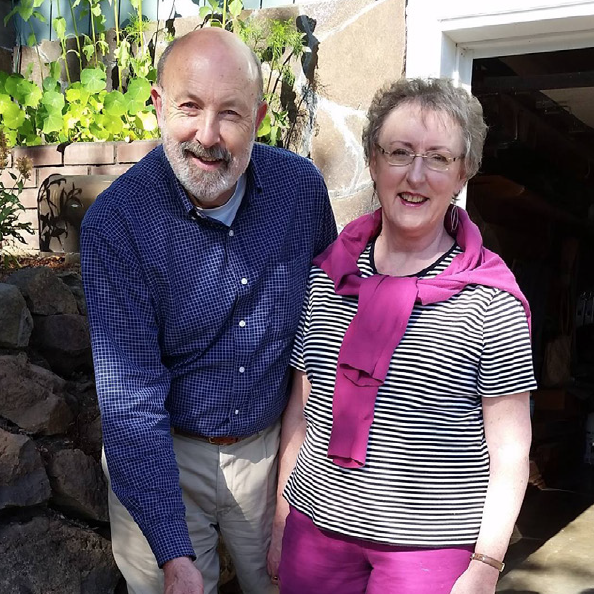

Since 2006, Betty Shelley and her husband Jon have produced just one 35-gallon garbage can of trash a year. Although they are Master Recyclers, Betty and Jon did not get to one can of garbage a year through recycling alone. They practice the “3 Rs” of reducing, reusing, and recycling, and they’ve added a few more “Rs” along the way, including repairing, repurposing, rethinking what they need, and refusing what they don’t need.
Their journey toward zero waste living started in 1992, when Betty and Jon took a Master Recycler Course in Portland, Oregon, where they live. In their course, they met and became friends with Jeanne Roy, who, together with her husband Dick, founded Northwest Earth Institute in 1993. When NWEI launched its first discussion course, Exploring Deep Ecology, Betty was excited to jump in. “I had been casting about, looking for something significant to become involved with, something that would satisfy a feeling that I needed to do more for the planet,” Betty says. “This seemed like the answer.”
The next NWEI course was a course on Voluntary Simplicity, and Betty and Jon were pilot participants for that course. “At first, the idea of voluntary simplicity made me nervous. I thought I would have to give away all of my stuff!” Betty says. “But it made sense to live a calm life. Nobody believes me,” she says with a laugh, “but I’m an introvert and I need quiet.” Betty and Jon also found themselves drawn to the concept of “living simply so that others may simply live.’” Betty had managed a women’s clothing boutique for several years, and had noticed how many customers would purchase something to make them feel better about themselves or their circumstances. But these customers would come back in a very short time and do the same thing all over again. “It was like they were trying to fill an emptiness with their purchases,” Betty says. She didn’t want to follow that same path. Before she knew it, Betty was committed to voluntary simplicity in her own life.
“We started by reducing our waste,” Betty says. “We started asking ourselves, ‘What can we avoid consuming?’ The first things we eliminated were paper napkins and paper towels because I couldn’t see throwing away something I had just spent money on after only one use!” Their waste reduction is a team effort, Betty says. “While I am often the instigator in reducing our waste, Jon is really good at finding ways to reuse and repurpose things.” Voluntary simplicity helped Betty and Jon to achieve other goals in their lives, including working less: “I wanted to work part time, and to be able to stay at home with our son, Ian. Living more simply enabled me to keep doing that,” notes Betty. From 1997 to 2003, Betty did not work away from their home besides taking occasional part-time jobs. “There are tradeoffs to working forty hours a week,” Betty says. “It’s too much to do it all, so you have to make choices, and that often means purchasing more because you don’t have the time to make it yourself. That usually creates more waste. By staying at home either full-time or part-time, I was able to cook our own food, choose organic food (which I think keeps us healthier), and clean our house, and even paint it myself instead of having to pay someone else to do it.”
If you were to walk into Betty’s and Jon’s house, you might not immediately know that they have chosen to live simple lives. Instead of boasting of stark minimalism, their decor is comfortable, attractive, and inviting. To look at them, Betty and Jon seem quite “normal,” as Betty laughingly describes them. But they have made significant changes over time. “We started with just one thing, but then we kept going, making choices mindfully,” Betty says. “All of my life, I’ve been a covert environmentalist. I was born frugal. Simplicity makes sense to me. It gives us a framework for making decisions. For example, we had three cars at one point. Jon and I each had a car, and Jon had a mid-life sports car. When I quit working, I didn’t need my car, and we didn’t want to pay insurance and upkeep on extra vehicles. So we got rid of two cars. It was so freeing not to have to have those expenses that most of us think we need to have, and that make us have to work to get the money for.”
Today, Betty and Jon practice simple living in many aspects of their lives. They continue to find ways to reduce their waste and inspire others to do the same. Betty teaches a class called Less Is More: Getting to One Can of Garbage a Year in the Portland area. Beyond waste reduction, they are intentional about the technologies they let into their lives. For example, the one cell phone they share is left in the car and only turned on when they need to use it, unless they use it for long distance calls. “I know that sounds extreme,” Betty says, “but it’s an intentional choice toward simplicity for us. We don’t want to be available all the time.”
Betty knows that simplicity isn’t always the easiest path. “Ian was 16 when we started voluntary simplicity,” Betty says. “I know it can be so much more complicated with young kids. Life can be hectic, not leaving you enough time If you were to walk into Betty’s and Jon’s house, you might not immediately know that they have chosen to live simple lives. Instead of boasting of stark minimalism, their decor is comfortable, attractive, and inviting. To look at them, Betty and Jon seem quite “normal,” as Betty laughingly describes them. But they have made significant changes over time. “We started with just one thing, but then we kept going, making choices mindfully,” Betty says. “All of my life, I’ve been a covert environmentalist. I was born frugal. Simplicity makes sense to me. It gives us a framework for making decisions. For example, we had three cars at one point. Jon and I each had a car, and Jon had a mid-life sports car. When I quit working, I didn’t need my car, and we didn’t want to pay insurance and upkeep on extra vehicles. So we got rid of two cars. It was so freeing not to have to have those expenses that most of us think we need to have, and that make us have to work to get the money for.”
Today, Betty and Jon practice simple living in many aspects of their lives. They continue to find ways to reduce their waste and inspire others to do the same. Betty teaches a class called Less Is More: Getting to One Can of Garbage a Year in the Portland area. Beyond waste reduction, they are intentional about the technologies they let into their lives. For example, the one cell phone they share is left in the car and only turned on when they need to use it, unless they use it for long distance calls. “I know that sounds extreme,” Betty says, “but it’s an intentional choice toward simplicity for us. We don’t want to be available all the time.”
Betty knows that simplicity isn’t always the easiest path. “Ian was 16 when we started voluntary simplicity,” Betty says. “I know it can be so much more complicated with young kids. Life can be hectic, not leaving you enough time

we write our emails to you with a lot of care and intention.
sign up to know about upcoming ecochallenges, impacts and insights, sustainability resources, and inspiration.
